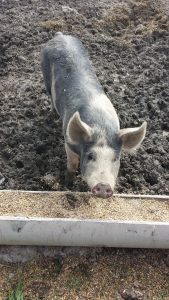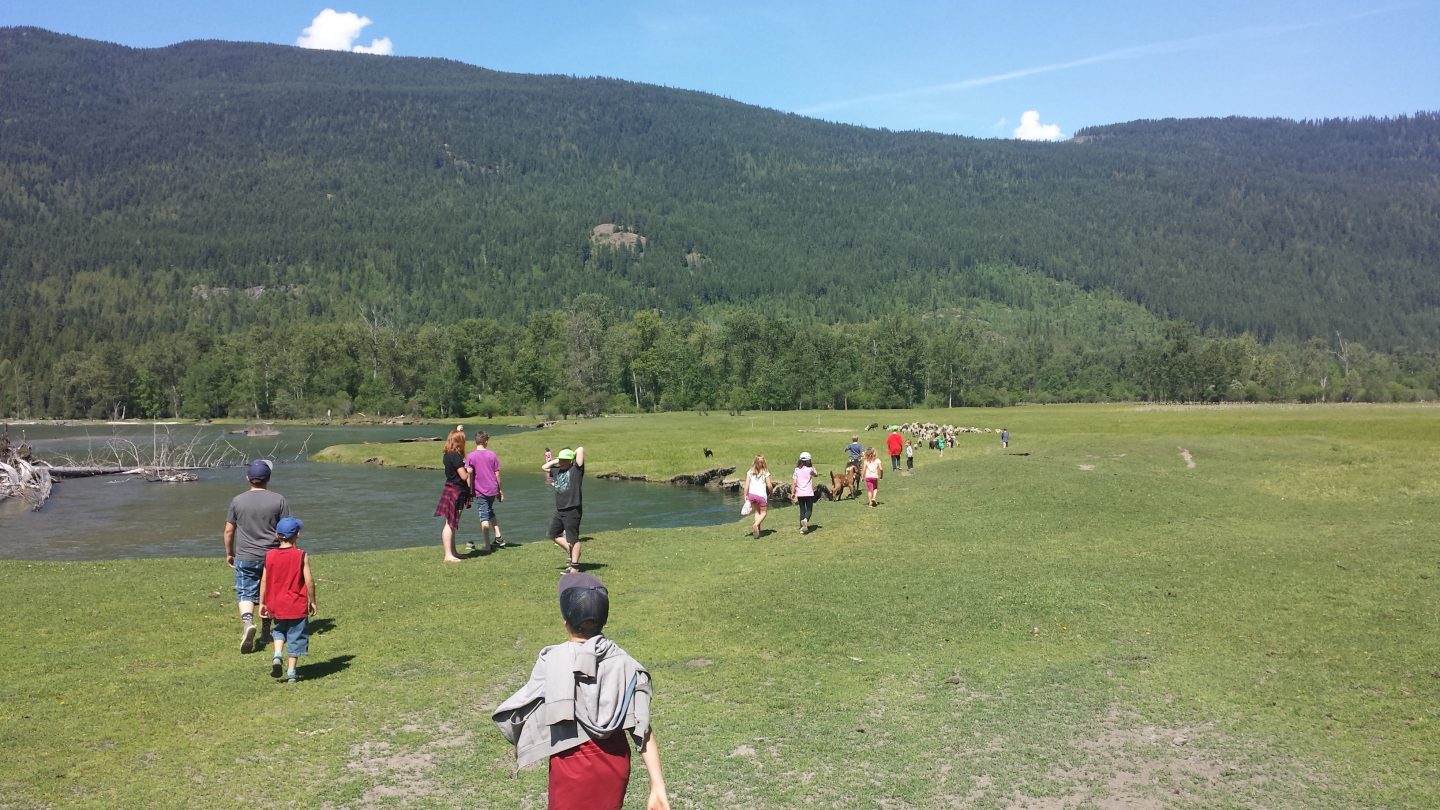Well, shoot for the stars, they say- and we did. We came to this project with a lofty vision, four women, a classroom of wonderful children and oodles of excitement. Our vision was to create a hands-on, interactive, fun, food literacy learning resource for our class, our school, and our community. As with every grand vision, there was metamorphosis, it might not be exactly what we thought it would be, but in the end we have a curriculum, and hopes for future classes to follow in our path.
Cheryl Grant’s multi-age elementary class served as the test group for the in-class learning modules. The curriculum consists of five modules, Food Geography, Food Culture, Food as Fuel, Food as Medicine and Food systems. The modules can be use in tandem or stand alone. They are designed for the classroom, with discussion, lecture components and fun, hands-on activities.
One of the key concepts of our plan was to take field trips to local farms, a greenhouse that grows food for those in need and food processors and incorporate it all into the curriculum. We also wanted to secure funding for other schools to be able to do the same thing.
The class visited SEEDS, an organization growing food in an old city greenhouse. We visited the greenhouse three times. On the first visit we planted zucchini seeds, on the second we transplanted the zucchini seeds, and on the third we went to pull up the zucchini plants. Over the summer SEEDS harvested a lot of zucchini from our plants and donated them to various charities throughout the city. During a massive wind storm last summer, the greenhouse was shattered by a falling tree. The kids, felt this loss deeply, so they organized a fundraiser, selling fruit we had dried outside The Kootenay Co-op. They raised $300 towards the set up of SEEDS new greenhouse.
Co-coordinating the visits to food processors proved fairly simple. We visited a Silverking Tofu Nelson Brewing Company, Kootenay Country Craft Distillery and Nelson’s Co-operative Grain Mill, which our school has bought shares in with some of our grant money.
The farm tours were fun and extremely rewarding. The kids got to harvest potatoes, and beans, watch cows being milked, make butter, take goats and sheep to pasture, go on a hay ride, and taste honey straight from the comb.

The farm tours however were difficult to arrange. Farmers are busy people, and they are especially busy during the times of year when the best learning opportunities are available. Logistically, the farm tours presented and real challenge and creating opportunity for future visits has proven just as difficult. However, we have not given up hope, and are working with The Kootenay Country Co-operative and Wild Voices for Kids to try to make this a reality for other classes in the Nelson area. The Kootenay Co-op has existing relationships with farmers in the area and will try to work out the logistical kinks. Wild Voices will pay the bussing cost and honorariums for the farm tours once this has been sorted.
We have learned that certain players move on and new ones appear, things change. Sometimes you just have to roll with it. We have also learned that sometimes patience can be your greatest asset. As they say, Rome wasn’t built in a day! We live in this busy, busy world, being realistic about the time and energy needed to put together such a program and to keep it running is crucial.
So in the end, we have five food literacy modules available to teachers who are interested in teaching about food as it pertains to health, food systems, geography and history. It will be available through the Farm to School BC website and The Kootenay Country Co-operative Store’s website. Our school kitchen, accessed by ALL classrooms in our school, and providing a much needed healthy food resource for at-risk youth in the REACH program, has now been stocked with much needed equipment.
Our class of 24 now really understands that mom and dad don’t just magically make food appear- it comes from somewhere. They learned that we are a part of complex food systems, and that these systems are integrated with many other systems, all with far reaching impacts. Our class understands that food is essential for health and wellbeing, and that taking responsibility for healthy food choices can begin at any age.
Our children experienced first-hand, the love, hard work, and commitment it takes to get food to market. They learned that a community can make amazing things happen. They saw how with a little thought, some soil and seed, and community involvement everyone can eat healthy food, and that they can be a part a part of it all.
Our vision has been pared down and simplified, but it is still grand, and doable. Thanks Farm to School BC for making it happen!

